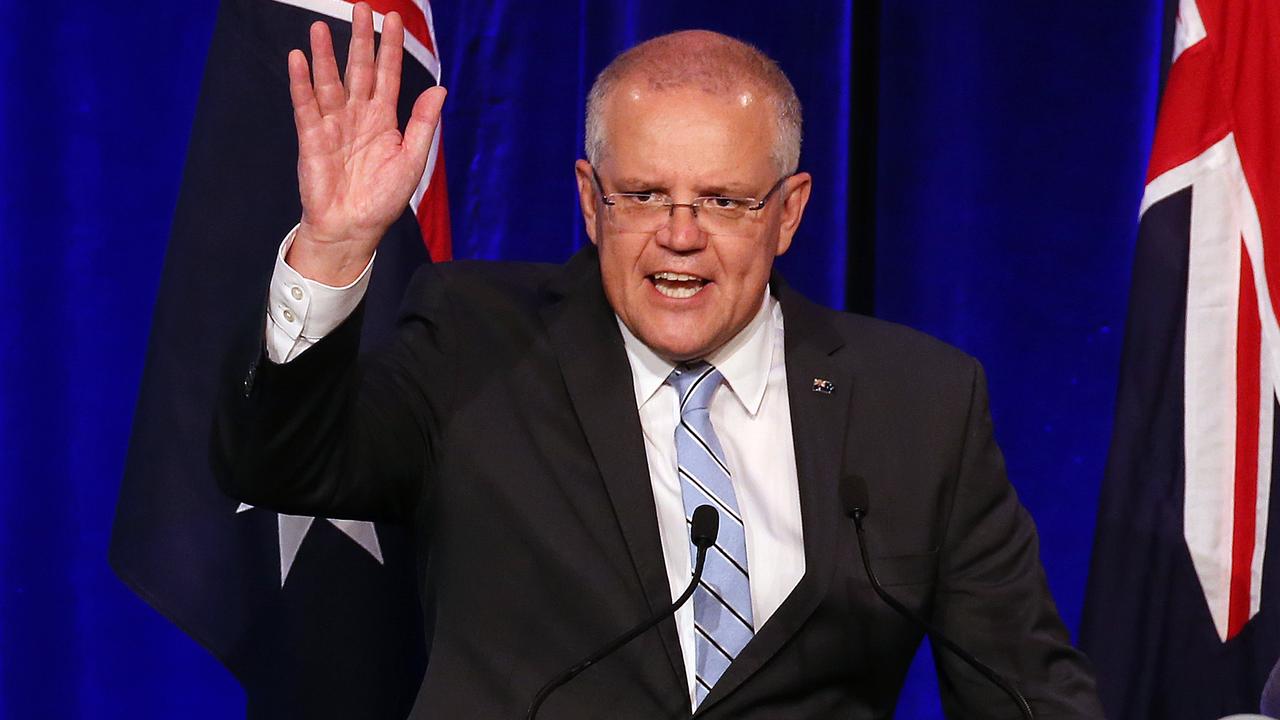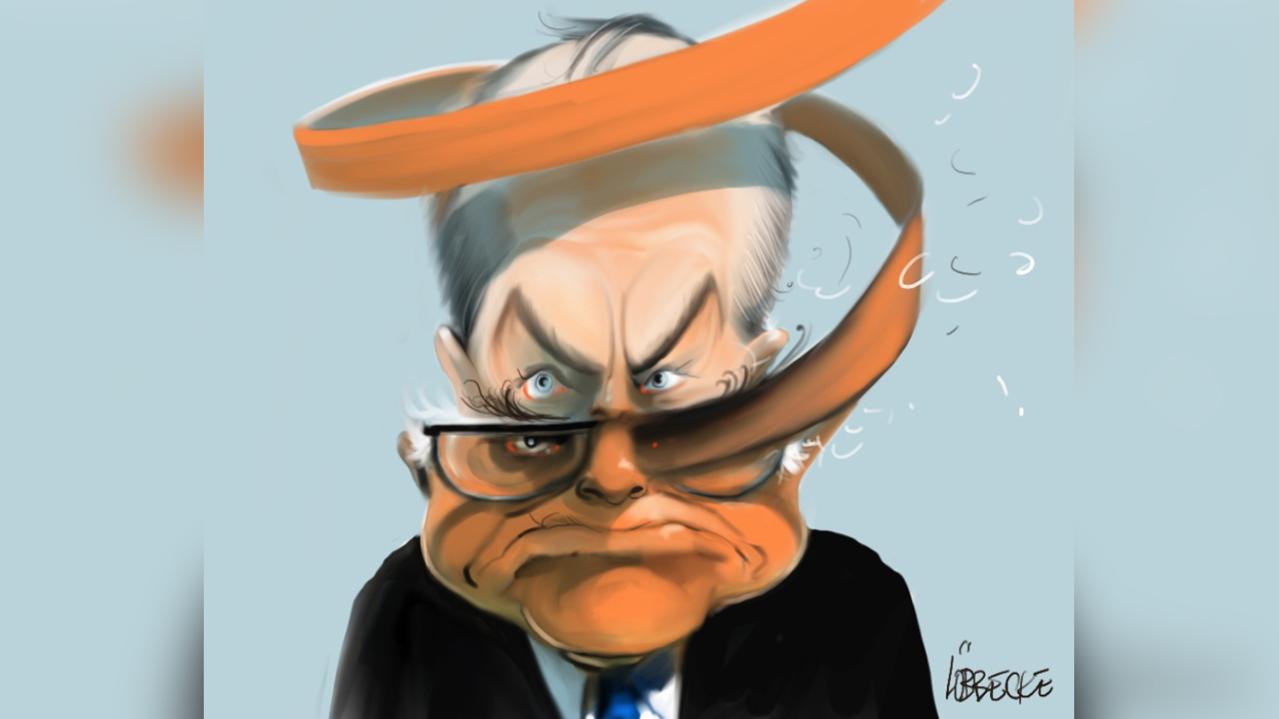Tax traps keeps workers from the west
THE apparent inability of Australia's workforce to fill skilled jobs in the mining rich states is caused by a clash that only the political class can solve. The clash is between the cultural desire of home ownership - a long held Australian value - and the tax impediments to mobility once people have made the biggest purchase of their lives.
Stamp duty is a key revenue stream for state governments burdened by vertical fiscal imbalance, but it also makes it financially hard for families to justify selling their home to chase job opportunities because of the cost of doing so. This reality is especially so in an economic climate of low capital returns on housing investments.
Of course there are other factors that stifle workforce mobility.
A lack of infrastructure in mining towns makes them undesirable to anyone but the fly-in fly-out worker. Education and training has not kept pace with the specific needs of the countless projects coming on line in the booming parts of the economy. And as former WMC head honcho Hugh Morgan noted yesterday, as a nation we probably have lost some of our flair for chasing opportunities not in our immediate backyard.
But for the culture of the Australian workforce to be recalibrated in a way that allows us to take full advantage of the mining boom, especially in otherwise troubled global economic times, we need true tax reform.
It must address the imbalance which sees a shortfall in infrastructure spending in areas such as northern Western Australia. It must provide incentives (or at least remove the barriers) to home owning workers up-rooting themselves and their families to chase opportunities interstate.
For example, if governments can't find a way to replace stamp duty with an alternative form of tax in a bid to drive workforce mobility, they should at least create incentives by offering specific stamp-duty concessions to persons selling up in one state and buying in another where greater employment potential exists.
But such reform requires collaboration between the commonwealth and the states. And that's highly unlikely in the midst of a debate over GST sharing arrangements and arguments over which tier of government owns the resources in the ground. (For what it's worth this later argument can be easily settled by a quick read of the Constitution: the states do.)
Of course not all workers unprepared to move where the jobs are fail to do so because of home transfer costs. But those who do cause the key cultural barrier to greater workforce mobility, creating a trickle-down effect of sorts.
The Immigration Minister's decision to allow Gina Rinehart's Roy Hill iron ore project in WA's Pilbara to import up to 1700 foreign workers, at a time when job losses in other sectors across the country are hitting the headlines, caused a political storm.
Understandably Australians being told about a patchwork economy where some jobs are under pressure were left to wonder why, as a nation of more than 20 million, we couldn't find willing and trained personnel to take up opportunities in the Pilbara.
Only politicians controlling policy levers can solve the conundrum. There's no point in union leaders blaming Rinehart for pursuing overseas workers when she has little option. Equally it's not xenophobia to have a preference for domestic workers filling domestic employment opportunities.
The Prime Minister got found out as she tried to sympathise with irate union leaders frustrated by the politics of Labor doing a deal with the world's richest woman at a time when it's attempting to prosecute a class war to restore Labor's working-class base. She told union bosses she was "furious" about the Roy Hill deal even though she had given her minister the green light to make it happen.
Telling different audiences what they want to hear is hardly uncommon in politics, and Tony Abbott is no stranger to the concept. But it was a particularly messy look for a PM under siege.
The latest Newspoll, which saw Labor's primary vote rise to 32 per cent (it was languishing at just 27 per cent a month ago), has given Gillard backers heart that perhaps she can turn around the political fortunes of the government. But that ignores the lows her personal numbers remain at. We have a unique situation in this country at the moment where both the PM and the Opposition Leader are sitting on net satisfaction ratings of roughly minus 30 per cent.
There is no better indicator of voter disillusionment with national political leadership.
The opposition has nowhere to go in this situation, however. Abbott can take credit for returning the Coalition to political competitiveness (and then some). He has done so at the expense of his personal ratings by demonising the carbon tax and the moral compass of the government. While a more positive leader such as Malcolm Turnbull or even Joe Hockey might overcome doubts in sections of the community about an Abbott prime ministership, such a shift is utterly out of the question.
Not so on the Labor side of the parliament. A Kevin Rudd comeback remains on the cards, and while somewhat hampered by the latest polling the mood for such a change hasn't evaporated. Just imagine the potential for a Labor recovery which could come from inserting a popular (or at least not despised) leader into the prime ministership to counter Abbott? It could be a game changer.
Whenever I do speeches on the bizarre state of Australian politics right now I'm asked how it is that Labor and the Liberals can go on propping up unpopular leaders when popular alternatives are available. The answer is relatively simple: popularity in the public sphere isn't necessarily matched by popularity among colleagues.
If you don't like Abbott, the worst thing you can do is meet him. The same can be said about the Prime Minister. By contrast, if you like Rudd the worst thing you can do is meet him: that, at least, is what many of his caucus colleagues say.
Herein lies the challenge for Labor. To survive, even thrive, it needs to shift support to a man many of them participated in removing just two years ago and most of whom continue to detest. And in doing so they would politically crush a woman they inherently like.
It's a tough ask, but eventually self-interest is likely to prevail. In politics it almost always does.
Peter van Onselen is a Winthrop professor at the University of Western Australia.


